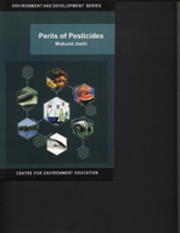4 - Pesticide Laws in India
Published online by Cambridge University Press: 26 October 2011
Summary
The first legislation on pesticides in India was enacted in 1968, although the use of pesticides in the country started in the 1950s. Most of the rules and regulations on pesticides have been formulated under the Insecticides Act, 1968. The aim of this Act is limited to methods to promote, regulate and control the sale of pesticides with a limited emphasis on ban/import of pesticides.
Powers of Controlling Officers
The Assistant Director of Agriculture, working under the respective state government, is the controlling officer vested with powers to regulate the sales and maintain the quality of pesticides in the country. The Indian Insecticides Act, 1968, guides his powers. The Joint Director of Agriculture of each district ensures that the Assistant Director of Agriculture at the taluka level complies with the provisons of the Indian Pesticide Act.
Some of the powers of the Assistant Director of Agriculture include the following:
To issue licences to trade on retail and wholesale basis in the taluka
To inspect the shops of pesticide traders and check, inter alia, the following aspects:
– No trader should sell pesticides unpacked and unsealed.
– No trader should sell pesticides after the expiry date and should not retain any stock of pesticides beyond the expiry date.
– A trader should sell the products of only such manufacturers, who have authorized him to trade on their behalf, either on wholesale or retail basis. […]
- Type
- Chapter
- Information
- Perils of Pesticides , pp. 22 - 28Publisher: Foundation BooksPrint publication year: 2005

